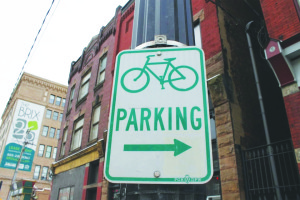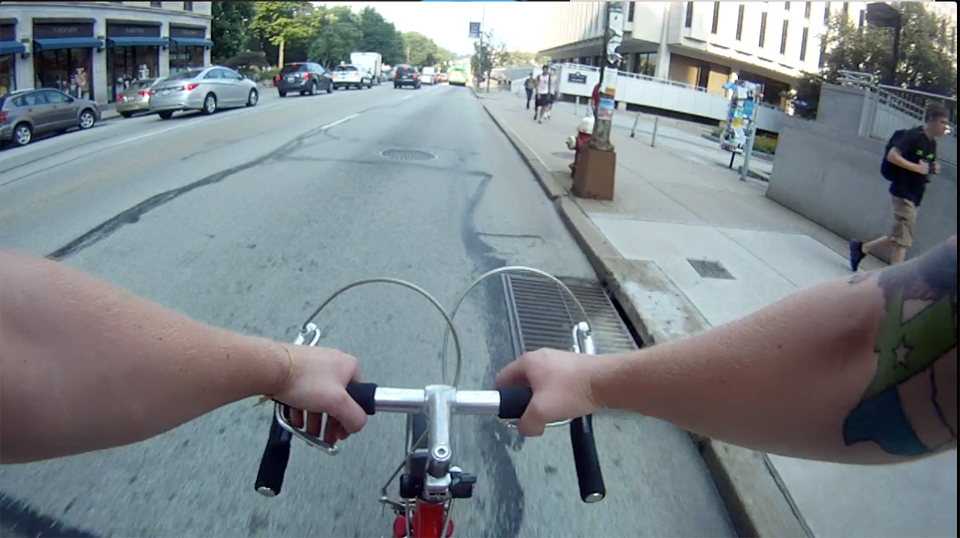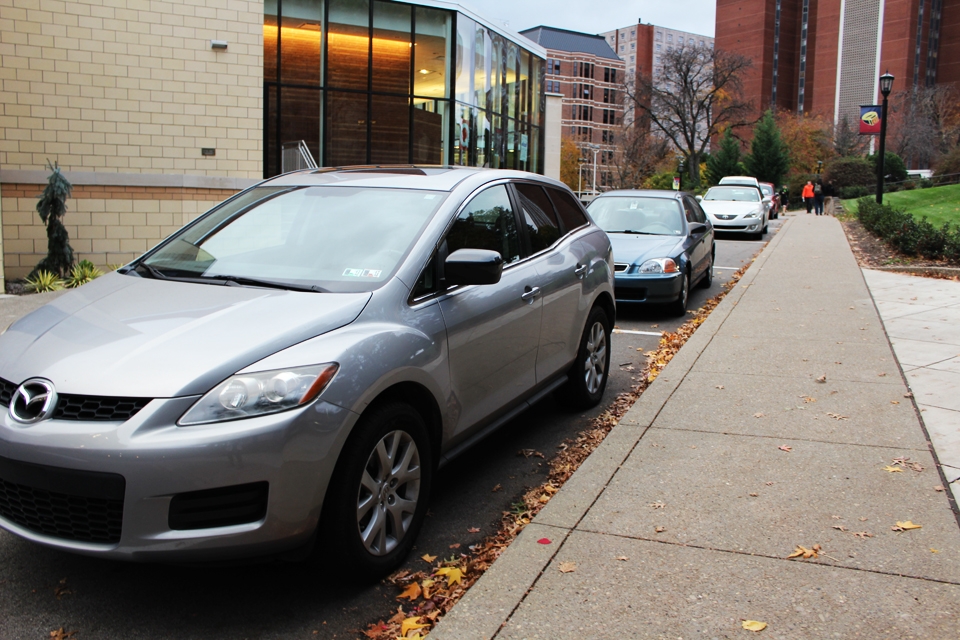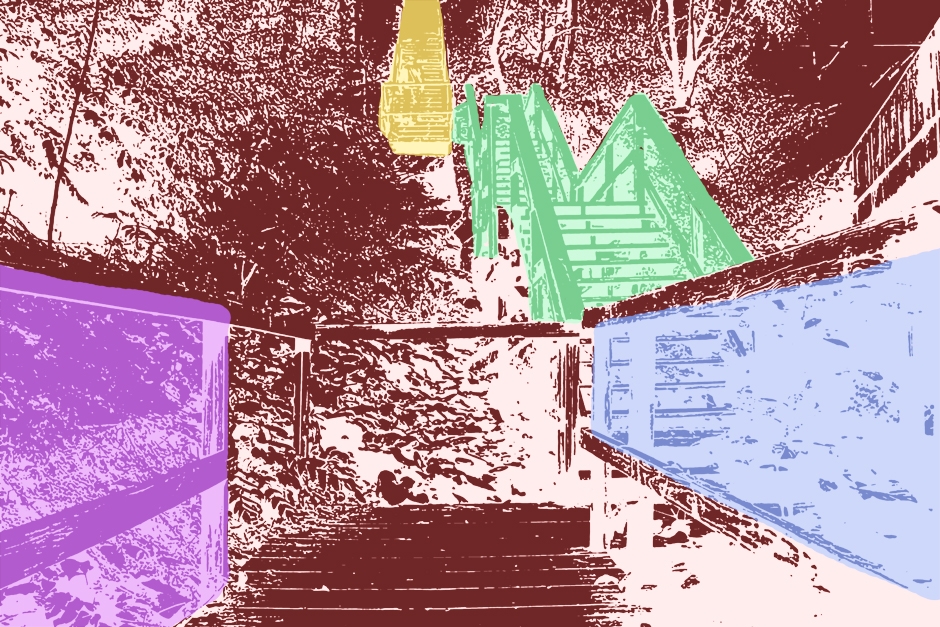
By: Seth Culp-Ressler | For The Duquesne Duke
Pittsburgh has recently been chosen as one of six cities to be part of The Green Lane Project, an initiative run by Boulder, Colo. based organization PeopleForBikes that aims to increase the amount of protected bike lanes present on the nation’s roadways.
According to PeopleForBikes’ website, The Green Lane Project focuses on assisting US cities in speeding up the construction and implementation of physically protected bike lanes, all with the hope of creating a more appealing environment for riding. During the first wave of the project, which took place in 2012 and 2013, the number of protected bike lanes nationwide almost doubled, rising from 80 to 142, with over half of that increase coming from the original Green Lane Project cities.
Green Lane Project program manager Zach Vanderkooy said that the program received interest from over 100 cities during the open application process, with a full written application for admittance into the project coming from 60. A national review committee evaluated the applications, and Pittsburgh, along with Atlanta, Boston, Denver, Indianapolis and Seattle, were selected.
“Pittsburgh has the magical combination of three things that are required to really change the way streets work,” Vanderkooy said. “That’s political leadership, community support and business support.”
Vanderkooy mentioned Mayor Bill Peduto’s leadership, the Pittsburgh Downtown Partnership’s support and the large amount of community involvement, specifically the advocacy group Bike Pittsburgh, as being major factors in the decision to choose the city for the Green Lane Project.
Vanderkooy is also quick to point out that financial support makes up only a small part of the deal for Pittsburgh. A modest amount of grant money will be part of the package, but the project will mainly provide technical and strategic assistance, as well as a nice amount of attention and national recognition.
Stephen Patchan, Pittsburgh’s Bicycle-Pedestrian Coordinator, is confident that the proposed bike lanes will greatly improve the city for the better in terms of riding environment.
“Our goal is to install infrastructure that accommodates every type of cyclist,” he said. “We want to be able to encourage new cyclists, those who are interested or a little bit concerned about how to bike, for children and elderly. We want to have the infrastructure that doesn’t limit people based on cycling expertise.”
Patchan said that the current plan is to install about five miles of protected bike lanes throughout the city. The Green Lane Project runs for two years, so while there are no concrete plans for the city once the project ends, he expects construction will continue until a completed system is in place. Patchan emphasized that protected bike lanes will drastically alter Pittsburgh’s cycling atmosphere for the better.
“When we accomplish [the construction of the bike lanes] it’s going to be a major change in our cycling community,” he said. “We’re going to have a lot more people biking, and as a result [of the bike lanes] our streets will be safer.”
Eric Boerer, advocacy director for Bike Pittsburgh, points out that one of the exciting aspects of the project is that Pittsburgh is now on the forefront of this safe biking movement.
“This type of infrastructure is fairly new in the United States,” Boerer said. “There are only so many cities that have actually installed a physical separation in the US In Europe it’s all over, but in the US it’s fairly new.”
Boerer said that this will give the city a good opportunity for “right-sizing” itself. That is, examining the traffic patterns and then “sizing” them to the layout of the roads. He gave the examples of taking away one side of parking or reducing the amount of lanes for automotive traffic as viable ways to do this.
Pittsburgh may also benefit economically from the bike lanes, according to Vanderkooy.
“There have been studies in New York City, which has installed a number of protected bike lanes since 2008,” he said, “And the corridors where the protected bike lanes are tend to outperform other similar corridors without them, in terms of economics, sales tax revenue and retail performance.”
Boerer said that the approval of Pittsburgh’s part in The Green Lane Project came at a good time with regards to biking in the city. He pointed to Pittsburgh Bike Share coming this summer, which will increase the number of riders by a large margin, as well as the Pro Walk/Pro Bike/Pro Place Conference, which is being held in Pittsburgh in September.
“It’s one of the largest conferences of its kind,” Boerer said. “About 1,000 people are going to be converging on the convention center—planners, engineers, advocates, people who are pro walking and biking—to kind of check out Pittsburgh. So it’s a great opportunity all around for that as well, just to really show off Pittsburgh and show off what the city has to offer.”




